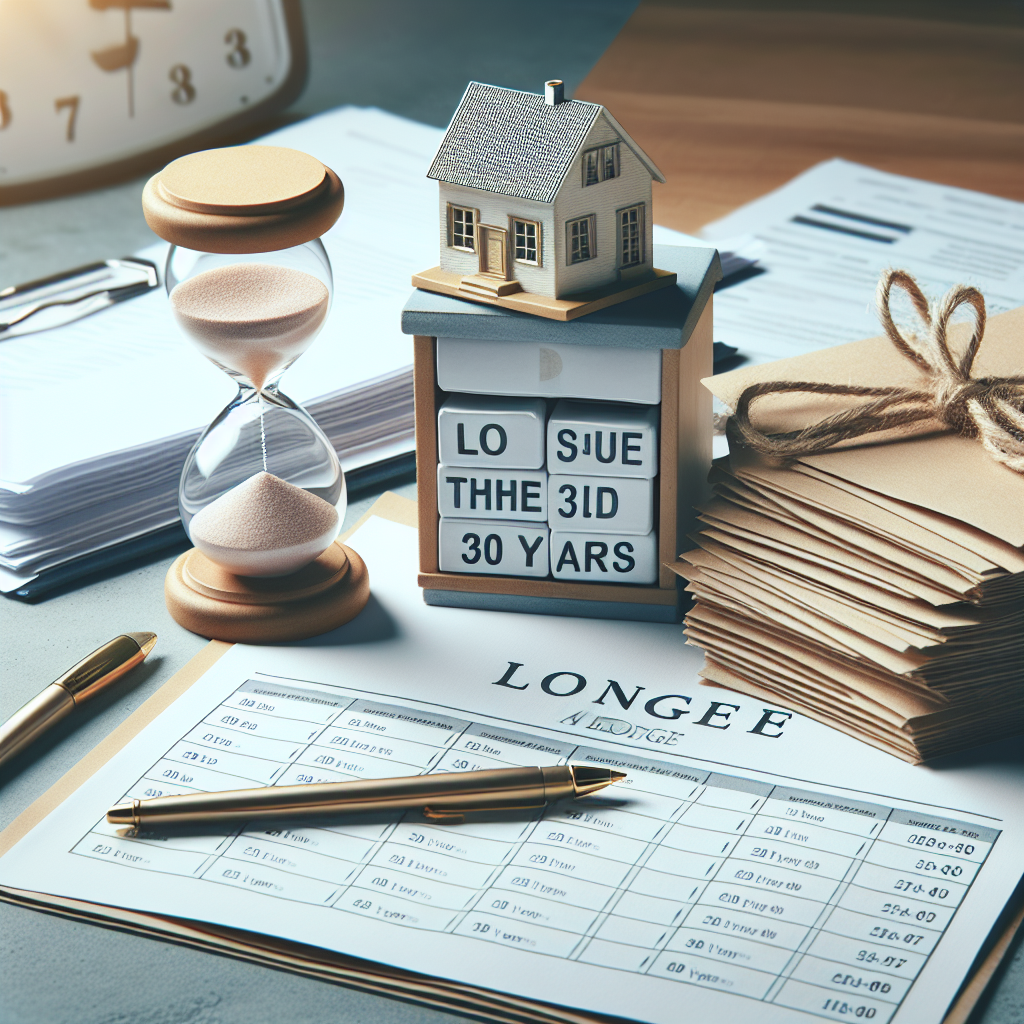When considering homeownership, many people wonder about the different mortgage options available to them. A common question is, “Can you get a mortgage for longer than 30 years?” This article will explore long-term mortgages, including their types, eligibility, advantages, disadvantages, and alternative financing options.
Understanding Long-Term Mortgages
What is a Long-Term Mortgage?
A long-term mortgage is a loan that spans a longer repayment period than the traditional 30 years. These mortgages can extend to 40 years or even longer, depending on the lender’s offerings and the borrower’s needs. The primary purpose of these loans is to make homeownership more affordable by reducing monthly payments, although this can result in higher overall interest costs.
Benefits of Long-Term Mortgages
Long-term mortgages come with several benefits, including:
- Lower Monthly Payments: Spreading the loan repayment over a more extended period can reduce monthly payments, making it easier for homeowners to manage their budgets.
- Increased Purchasing Power: A lower monthly payment may allow you to buy a more expensive home than you could with a shorter-term mortgage.
- Flexibility: Long-term mortgages can provide financial flexibility, especially for first-time homebuyers or those with tighter budgets.
Can You Get a Mortgage for Longer Than 30 Years?
Types of Mortgages Available
Yes, you can get a mortgage for longer than 30 years. Some of the most common options include:
- 40-Year Mortgages: These loans extend the repayment period to 40 years. While they offer lower monthly payments, they may come with higher interest costs over the life of the loan.
- Adjustable-Rate Mortgages (ARMs): Some ARMs can have initial fixed-rate periods longer than 30 years, after which the rate adjusts periodically. These can be beneficial for those expecting to refinance or sell before the adjustment period begins.
Eligibility Requirements
To qualify for a mortgage longer than 30 years, you typically need to meet certain criteria:
- Credit Score: Most lenders require a minimum credit score, often around 620 or higher. A better score can lead to better terms.
- Debt-to-Income Ratio: Lenders often look for a debt-to-income (DTI) ratio under 43%, although some may allow higher ratios depending on other factors.
- Down Payment: A larger down payment may improve your chances of approval and can lower monthly payments.
Pros and Cons of Mortgages Longer Than 30 Years
Advantages
- Affordability: Lower monthly payments can make homeownership feasible for many.
- Financial Stability: For those with fluctuating incomes, lower payments can provide more financial security.
- Longer Time to Build Equity: You have a longer time to pay down the loan and build equity in your home.
Disadvantages
- Higher Interest Costs: Over a longer period, you may pay significantly more in interest, increasing the total cost of the home.
- Slower Equity Accumulation: Because you pay down the principal more slowly, it takes longer to build equity in your home.
- Risk of Negative Amortization: Some long-term loans, particularly ARMs, can lead to situations where your loan balance increases instead of decreases.
Alternative Financing Options
If you’re considering whether you can get a mortgage for longer than 30 years, you might also explore these alternative financing options:
40-Year Mortgages
A 40-year mortgage is a popular alternative for those looking for lower monthly payments. While they can be beneficial for cash flow, it’s crucial to consider the long-term financial implications, including total interest paid.
Adjustable-Rate Mortgages (ARMs)
Adjustable-rate mortgages can offer lower initial rates than fixed-rate options. While they may provide short-term savings, it’s essential to understand the potential for rate increases after the initial fixed period and how it affects long-term budgeting.
Impact on Monthly Payments
How Longer Terms Affect Payments
The primary advantage of mortgages longer than 30 years is the lower monthly payment. For example, a $300,000 mortgage at a 4% interest rate would result in a monthly payment of approximately:
- 30-Year Mortgage: $1,432
- 40-Year Mortgage: $1,432 (approximately)
This shows that a longer term can help keep your payments manageable.
Interest Rates Comparison
Interest rates for longer-term mortgages may be slightly higher than for traditional 30-year loans. Always compare offers from multiple lenders to find the best rate available.
According to the Consumer Financial Protection Bureau, the average rate for a 40-year mortgage is usually higher by 0.25% to 0.5% compared to a 30-year mortgage.
Frequently Asked Questions
1. Can you get a mortgage for longer than 30 years?
Yes, many lenders offer mortgages that extend beyond 30 years, such as 40-year loans and adjustable-rate mortgages with longer terms.
2. What are the benefits of a longer mortgage term?
Longer mortgage terms generally offer lower monthly payments, which can make homeownership more affordable.
3. Are there drawbacks to a mortgage longer than 30 years?
Yes, the main drawbacks include higher overall interest costs and slower equity accumulation in your home.
4. What types of loans can extend beyond 30 years?
Common options include 40-year fixed-rate loans and certain adjustable-rate mortgages that start with a fixed period.
5. How do I qualify for a longer mortgage?
To qualify, you typically need a good credit score, a manageable debt-to-income ratio, and a sufficient down payment.
6. Should I consider a longer mortgage term?
It depends on your financial situation. If you prioritize lower monthly payments and can handle the higher total interest costs, a longer term may be a good fit.
Conclusion: Is a Longer Mortgage Right for You?
In summary, yes, you can get a mortgage for longer than 30 years. These loans offer unique benefits and challenges that may suit your financial situation. Before committing, it’s essential to consider your long-term goals, budget, and the total costs involved. Always consult with a financial advisor or mortgage professional to ensure you choose the right mortgage option for your needs.




0 Comments